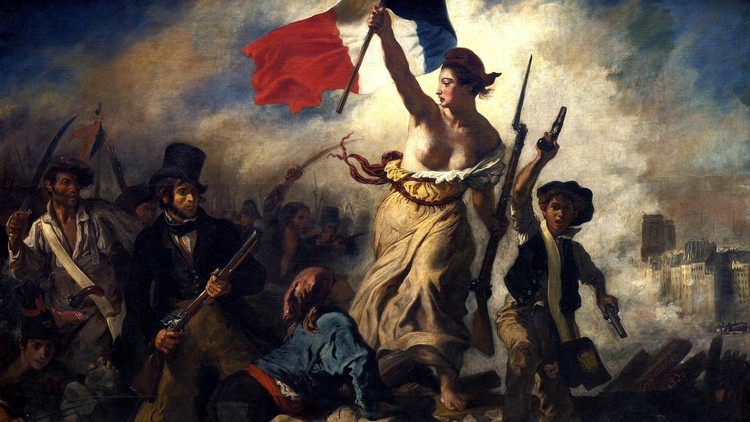Principio de Separación de Poderes y Estado de Derecho

Why take this course?
Course Title:
Principio de Separación de Poderes y Estado de Derecho: Legado de la Ilustración Francesa
Course Description:
Dive into the Enlightenment and its Impact on Modern Governance 📚✨
Historical Context and Revolutionary Ideas: The principle of the Separation of Powers was a cornerstone in the foundation of the French Revolution, which sought to end monarchy and establish the rights of man and the citizen. This radical shift aimed to recognize fundamental rights as natural entitlements inherent to every human being at birth.
- 1789: The proclamation of the Derechos del Hombre y del Ciudadano marked a turning point, setting forth the inalienable rights of liberty, property, security, and resistance against oppression.
- 1791: The first French Constitution was established, defining the structure of government with checks and balances to prevent abuse of power.
The Enlightenment's Matrix for Revolution: During this tumultuous era, a myriad of philosophical currents flowed through European thought. Although the American Revolution preceded it, the ideas of the Enlightenment were the true catalyst for the French Revolution and later inspired revolutionaries in Latin America, including figures like Francisco de Miranda and Simón Bolívar.
Montesquieu's Tripartite Model: The visionary philosopher Montesquieu articulated the Separation of Powers into three distinct branches: the Executive, the Judiciary, and the Legislature. His concept was groundbreaking; each power, while separate, would check and balance the others, thus ensuring a system of governance that protects liberties.
- Executive: Responsible for enforcing the laws and managing the administration.
- Judiciary: Tasked with interpreting the law impartially and settling disputes based on established legal norms.
- Legislature: Enacting statutes, setting policy directions, and representing the voice of the people.
Understanding Montesquieu's Vision: "Espíritu de las Leyes" 🏛️ Montesquieu's seminal work, "The Spirit of the Laws," offers a detailed exposition of his theory of government. It emphasizes the importance of a balanced constitution to maintain freedom and prevent despotism. His ideas laid the foundation for modern constitutional governments around the world.
Why Take This Course? This course will empower you with an understanding of:
- The historical roots of modern democratic principles.
- The significance of the Separation of Powers in maintaining a check on government authority.
- The legacy of the French Enlightenment and its enduring influence on contemporary governance systems.
Join us to unravel the complexities of one of the most significant political theories that shaped modern civilization. Engage with historical texts, analyze their impact, and explore how these ideas continue to resonate today. 🎓🌍
Enroll now to embark on a journey through time, examining the foundational principles that govern our societies! 🚀🔍
Course Gallery




Loading charts...